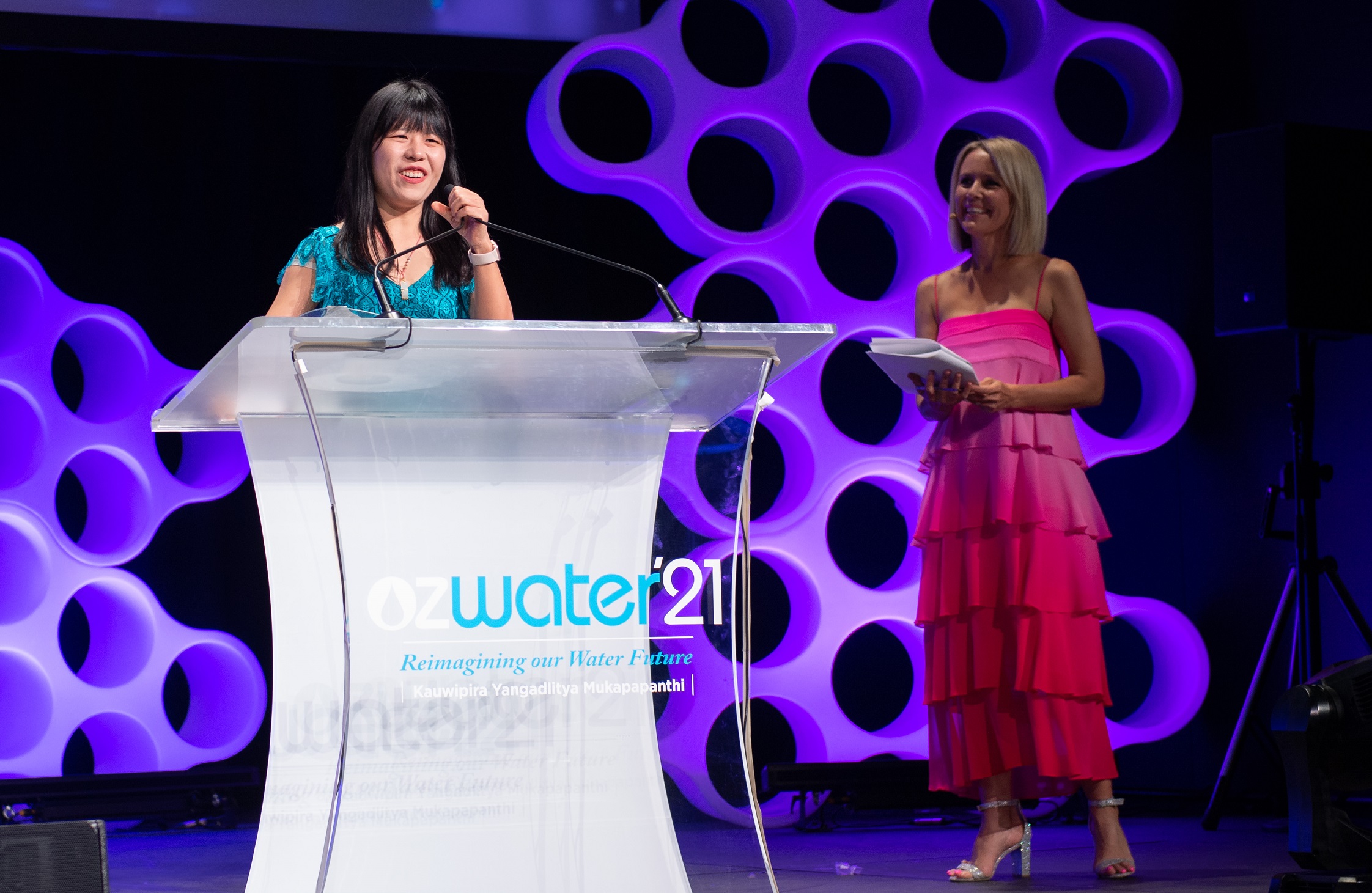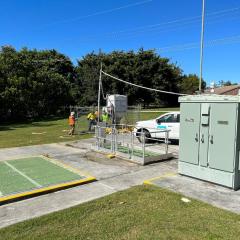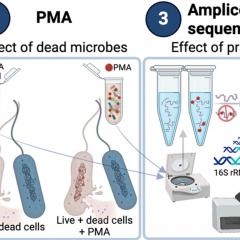
Zhiyao won the Australian Water Association’s QLD Student Water Prize in 2020, then went on to take home the National Student Prize Award in 2021, for her work on treating wastewater and sludge by employing novel ammonia-oxidizing bacteria. Her research will benefit the wastewater sector by reducing operational costs, enhancing bioenergy recovery, and enabling sustainable sludge management.
What did winning the QLD prize, and then going on to also win the National student prize mean to you?
It really means a lot. It is a recognition of my PhD work from industries. It will inspire me to keep working closely with industrial partners and deliver real impacts.
Do you have plans to enter other awards?
Definitely. I will keep an eye on opportunities. An award is more than an honour to me. It is the process when I was preparing for the award that really matters. This process gives me the opportunity to reflect on what I have done, and push me to align my research directions with the to-be-solved problems of the real world.
How have you felt about the transition from student to professional researcher?
It is a new challenge. The most significant difference between PhD students and professional researchers is the independence. Although you can still get help from others, but people hold higher expectations of you. As a professional researcher, you are anticipated to take more responsibility. For instance, I not only need to take care of my own project, I also need to supervise PhD students, which sometimes is more challenging.
A post-doc research fellow encompasses multiple roles. As a researcher, I aim to develop independence, in defining research topics, designing experiments, writing papers and proposals, etc. I also aim to engage in some teaching work.
As a supervisor of HDR student, I hope to help them establish a proper perception of research. It does not matter whether they want to stay in academia after HDR training. My aim is to help them find what was deeply rooted in their hearts.
Completing a PhD is an enormous task – has the transition to researcher felt like it is easier or harder than the PhD?
It is difficult to simply give an answer of easier or harder. I would say different. In some senses, the role as a researcher feels easier than PhD, because a PhD student needs to learn everything from scratch while for researchers, they have been equipped with some critical skills for research during their PhD training. But researchers also face a lot of new challenges, such as writing proposals, supervising students, teaching, etc. It takes quite a lot to manage these different roles and tasks.
What is your favourite/special research topic right now? And is there a particular research area you want to explore?
I am currently working on the transformation of carbon and nitrogen in wastewater systems. Specifically, I will continue my PhD work about a new microbe that could be the next game-changers of wastewater treatment processes, transforming wastewater treatment plants from pollutant removal facilities to resources recovery factories. I am interested in climate changes. I am exploring how my expertise and experience can cope with this global issue.
What are your plans for the future?
I am very likely to stay in academia, because I can feel the calling from inside. And also, I tend to be driven by strong curiosity. Meanwhile, I think that research cannot and should not detach from the real world. Therefore, I will try to work closely with industries and deliver really impactful research. Apart from research, I would be keen to engaging in teaching. For me, I feel that helping others find the best of themselves is as important, if not more, as fulfilling my personal goals. I want to pass on my passion and curiosity, and to inspire more young talents to engage in science and technology.



